How Vladimir Putin’s skewed view of World War Two threatens his neighbors and the West
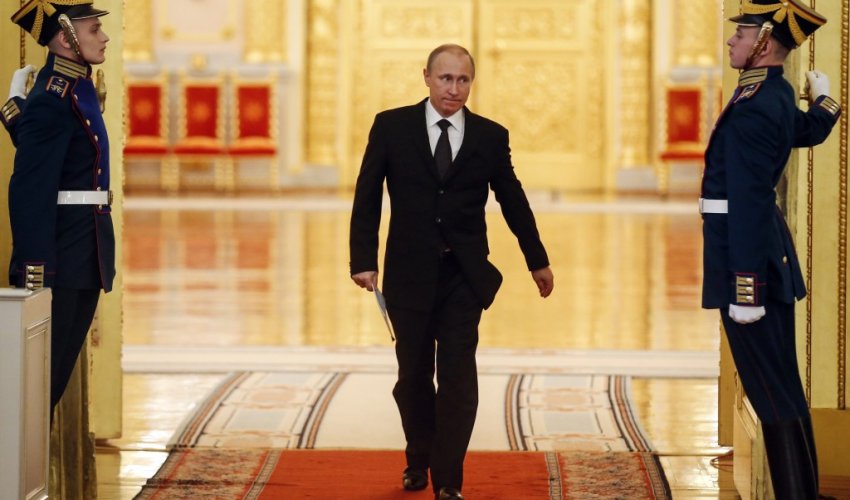
Russian President Vladimir Putin stands smiling between George W. Bush and German Chancellor Gerhard Schroeder as the U.S. president reaches out to shake hands with Japanese Prime Minister Junichiro Koizumi. It was a photo-op that couldn’t be missed: the military parade in Moscow on May 9, 2005, marking the 60th anniversary of the Nazis’ capitulation. Despite widespread outrage over the U.S. invasion of Iraq, everybody could agree that the end of World War Two was worth celebrating together. Even Viktor Yushchenko, the first Ukrainian president who openly defied the Kremlin, came.
This May 9, Putin will be lucky if a couple of European presidents show up for the 70th anniversary. The annexation of Crimea and Russia’s support for militants in eastern Ukraine have made Kremlin invitations toxic. Few Western leaders will want to be seen at a Victory Day parade featuring 15,000 soldiers and 200 military vehicles, including the BUK anti-aircraft missile system believed to have shot down Malaysian Airlines Flight MH17 over eastern Ukraine last summer.
Just five years ago, U.S. and other Allied troops marched in the Victory Day parade to commemorate the coalition that defeated Nazi Germany. Now Russian Foreign Minister Sergei Lavrov is blaming "the Americans and the European Union’s aggressive core” for sabotaging the Kremlin’s party plans. The foreign dignitary likely to attract the most attention this year is North Korean leader Kim Jong-un, who is expected to make his first official trip abroad to attend the Moscow parade.
A string of historic 70th anniversaries began in June of last year, when France remembered the Allies’ D-Day landing in Normandy. German Chancellor Angela Merkel ably used the occasion to arrange Putin’s first meeting with the freshly inaugurated Ukrainian president, Petro Poroshenko. But as the Kremlin ramped up its involvement in eastern Ukraine, Putin became an increasingly unwanted guest at international gatherings.
In January, the Red Army’s liberation of the Auschwitz death camp in Nazi-occupied Poland was remembered. The Polish government didn’t send out formal invitations to the commemoration, thereby letting Putin know he wasn’t welcome at a ceremony attended by dozens of world leaders. A couple of weeks later, the 70th anniversary of the Yalta Conference came and went. That summit — hosted by Stalin in the Crimean resort — extended the Kremlin’s influence over much of Eastern Europe and helped set the stage for the Cold War. The next big awkward anniversary is April 25, 1945, when advancing Soviet and U.S. troops met on the Elbe River south of Berlin, sealing Adolf Hitler’s fate.
World War Two was supposed to be history by now. Germany, once Europe’s chief villain, had long atoned for its sins, building a model democracy, making peace with its neighbors, and becoming an anchor of the continent’s unity. 2015 was meant to be a year of remembrance and celebration of how far Europeans had come in seven decades. Instead, it has degenerated into a clash that says more about the present than the past, especially in Eastern Europe.
For most countries that emerged from the Soviet empire 25 years ago, independence from Moscow exposed messy, overlooked histories. The small nations of east central Europe had been pushed and pulled by the Nazi and Communist juggernauts surrounding them. From the Baltics to the Balkans, it was a story of collaboration and betrayal, resistance and subjugation. One and the same army could be viewed as liberator, conqueror and occupier. Loyalties were split, quartered and ground to pieces.
Complexity or inconvenient facts had no place in official Soviet historiography, where the Red Army was celebrated as the undisputed victor in the war against fascism. The 1939 Molotov-Ribbentrop Pact that carved up Poland and ceded the Baltic nations to the Soviet Union was forgotten; the Holocaust downplayed; and the role of the Western Allies diminished. World War Two was remembered as the "Great Patriotic War” and didn’t start until the Nazis’ genocidal invasion of the Soviet Union in 1941. There was no mention that Hitler and Stalin were allies before the attack. The Pacific war was a sideshow that the Soviet Union didn’t enter until Japan’s defeat was imminent.
When Putin came to power in 2000, Russians were still reeling from a decade of nihilism that had followed the collapse of Communism. For a country that was beginning to pick itself up, the "Great Victory” against the Nazis presented itself as the ideal surrogate for a national idea to pull together Russia. Practically every family had suffered in the war, and the whole country knew the iconography from Soviet television and film. Putin couldn’t buy Russia a new identity for all the petrodollars in the world, but he could make Victory Day the de facto national holiday, celebrated with ever more gargantuan military parades.
For Putin, the Soviet version of World War Two is a cornerstone of Russian prestige. In March, Putin called his ministers to a meeting in the Kremlin to check on preparations for this year’s holiday.
"Today we unfortunately see not only attempts to misrepresent and distort events of the war, but cynical, open lies and the brazen defamation of a whole generation who gave up everything for the victory,” Putin said. "Their goal is clear: to undermine the power and moral authority of modern Russia and deprive it of the status of a victorious nation.”
Putin was reacting to ridiculous — and transparently political — statements by Eastern European leaders that hardly warranted a response. In January, Ukrainian Prime Minister Arseniy Yatsenyuk recalled the "Soviet invasion of Ukraine and Germany” on German TV, and Polish Foreign Minister Grzegorz Schetyna suggested in an interview that an ethnic Ukrainian unit of the Red Army had actually liberated Auschwitz.
Lavrov denounced his counterpart’s comments as "sacrilegious.” The word choice is revealing, as Russia’s World War Two cult has taken on quasi-religious qualities. Leading up to the 65th anniversary of the war’s end, the Kremlin even convened a special commission to combat the "falsification of history,” evidently with unsatisfactory results.
The problem isn’t an attempt to deny the sacrifice of tens of millions of Soviet civilians and Red Army soldiers. At issue is the dual nature of a liberation that turned into conquest as Stalin steamrolled across and then subjugated Eastern Europe.
In the Kremlin’s cartoonish portrayal of history, the people who fought fascists were not Communists or democrats but simply "anti-fascists.” In Russia, the term "fascist” has been stripped of ideology and is synonymous with "anybody we don’t like.” Given Putin’s authoritarianism and his appeal among far-right parties in Europe, the Kremlin’s concern about fascism is artifice. Putin is an opportunist, not an ideologue.
Yet remembering the Great Victory is more than an instrument to consolidate Russians: it has also become a way to prepare people for war.
The Kremlin cast the Ukraine conflict in Soviet tropes from the start, branding the pro-European interim government as "fascist” and spreading hysteria among Russian speakers about the coming wrath of the Banderovtsy — followers of the World War Two-era Ukrainian nationalist leader, Stepan Bandera. The fear-mongering fell on fertile ground, as Ukraine had witnessed some of the fiercest fighting and worst massacres of the war. Pro-Russian militants in Crimea and eastern Ukraine convinced themselves they were reliving an epic struggle against fascism. Their symbol became the orange-and-black striped St. George’s ribbon, a sign of remembrance of the Red Army’s victory over Nazism.
For Putin, the main lesson of World War Two is that enemies are tirelessly plotting to encircle and enslave Russia. If 75 years ago it was the Third Reich, today it’s the United States and its allies in the North Atlantic Treaty Organization. At the same time, President Barack Obama’s decision to ignore his parade has infuriated Putin. In March the pro-Kremlin tabloid LifeNews started a Twitter campaign, #VictoryDayForObama, "to remind the president of one of the most important days of the 20th century.”
Germany has championed good relations with Russia as a way of making up for World War Two and can’t be as dismissive as the United States. German leftists proposed inviting Putin to Berlin to mark this year’s anniversary. Merkel settled on a more diplomatic solution: skipping the military parade on May 9 yet paying her respects at the Kremlin’s Tomb of the Unknown Soldier a day later.
Twenty years ago, Bill Clinton faced a similar dilemma. The U.S. president ended up traveling to Moscow for the 50th anniversary of the war’s end, but he stayed away from the main military parade as a way of showing his disapproval of Russia’s war in Chechnya.
(reuters.com)
ANN.Az
www.ann.az
Similar news
Similar news
Latest news 
More news 
























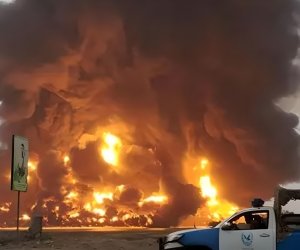
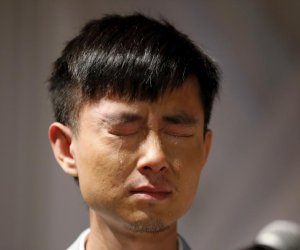
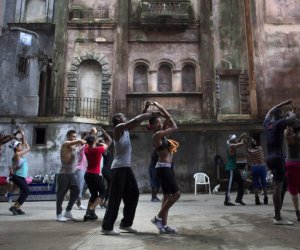

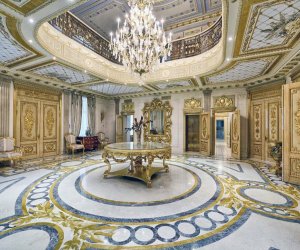
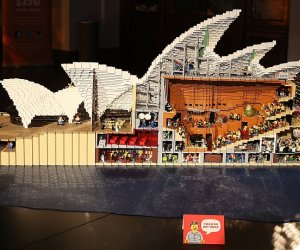
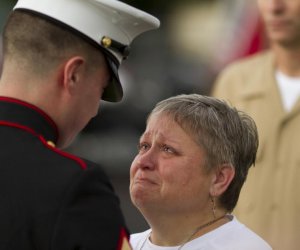

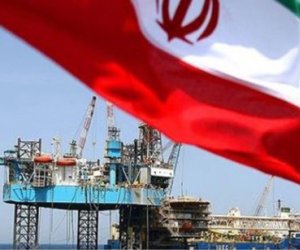


 Photo
Photo 



 Video
Video 

